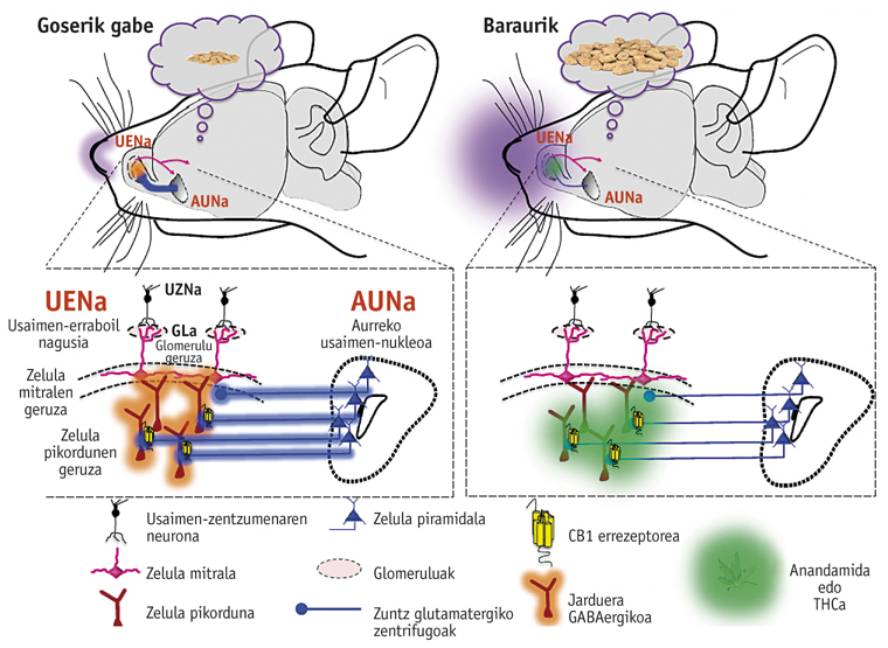They discover a brain mechanism that unites hunger, smell and appetite
It is known that hunger increases the smell, which causes the desire to eat the olorized. So it happens, for example, when you notice the smell of fresh toasted bread. Well, an investigation in which a UPV-EHU researcher has been co-director has revealed in which region of the brain and how the connection between these three episodes occurs. The results of the research have been published by the journal Nature Neuroscience.
This process involves the cannabinoid system. Pedro Grandes, researcher of the department of Neurosciences of the UPV-EHU and co-director of this study, explained: "During hunger, a specific endogenous cannabinoid (anandamide) is synthesized that affects a specific receptor, CB1. These receptors are found in certain nerve terminals of the olfactory bulb. The function of these terminals is to regulate the transmission of synaptic excitation. Well, when cannabinoids affect the CB1 receptors of the bulb, the excitation communication emitted by olfactory zones of the cerebral cortex is reduced, which ends in the innermost layer of the olfactory bulb. This favours the performance of all the intrinsic functions of the olfactory bulb. For example, the cells that perceive the smell transmit the smell better, so the perception of smell increases".
In addition to the perception of smell, the researchers observed the importance of the CB1 receptor. “If these receptors were pharmacologically blocked or genetically removed (creating mice without these mechanisms) mice ate less when they were hungry,” says Grandes. In vivo studies confirm the influence of the CB1 receptor on the mechanism that drives to eat more mouse.
Finally, the researchers realized that these phenomena are not exclusive of the endogenous cannabinoids, that is, they are produced by the organism itself. “By injecting THC into the animals, the psychoactive component of cannabis, the perception of smell and appetite that had increased to them, said the UPV researcher.






